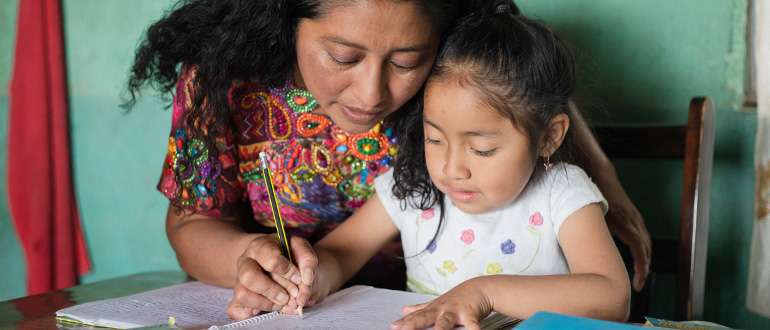What We Believe: Public Attitudes on Immigration

We are just three months out from the presidential election, and immigration policy remains a topic of great interest to voters nationwide. Fifty-seven percent of Americans believed dealing with immigration should have been a top policy priority for the current president and Congress this year, according to a Pew Research Center analysis from March. In early 2021, only 39 percent of Americans viewed the issue as a priority.
Americans’ attention is largely focused on the U.S.-Mexico border, where citizens of Mexico, El Salvador, Guatemala and Honduras have traditionally sought entry to the U.S. More recently, migrants from countries including Venezuela, China and other more far-reaching places have flocked to the United States’ southwestern border. In December 2023, the U.S. Border Patrol had its highest monthly total of encounters with migrants ever, with 250,000 apprehensions or immediate expulsions, according to Pew.
Most immigrants in the U.S. have the legal documents necessary to stay here. In 2022, around 7 percent of the U.S. population was made up of noncitizen immigrants. Of that group, roughly 40 percent are undocumented, according to a KFF report. Those who come are driven by several push and pull factors, including economic opportunities in the U.S. as well as violence in their countries of origin.
[Learn More: Ebenezer Healthcare Access: Addressing the Refugee Experience in Ohio]
Often leaving one’s home country and seeking out a new life is a matter of survival. Increasingly, whole families attempt to make the journey to greater safety and security. According to Pew: In December 2023, the Border Patrol had nearly 102,000 encounters with people traveling as families. A year earlier, the agency had around 61,000 encounters with families.
“I don’t think there’s enough talk about the country conditions and what children and families are really struggling with in their home countries,” Dr. Alan Shapiro said at the Association of Health Care Journalists’ annual conference in June. Shapiro is an assistant professor of pediatrics at Albert Einstein College of Medicine and an advocate for immigrants. “I think if the public knew more about how terrible life is for children and families there, and how little protection there is, there would be a lot more empathy and sympathy for [them].”
Most Latino migrants also believe the U.S. holds the promise of better health care. Just over 70 percent of Latinos born in Puerto Rico or another country say access to health care services is better in the U.S. than in the place of their ancestry, according to a 2021 Pew survey.






